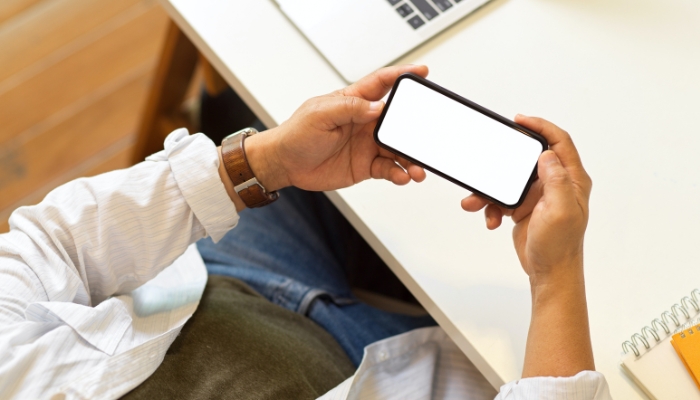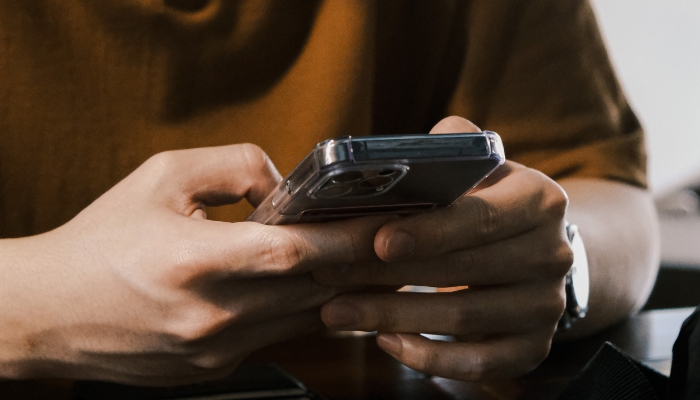
You might think burner phones are as elusive as unicorns in a spy’s toolkit, but can they really dodge modern surveillance?
Burner phones, often associated with underworld dealings and secret missions, are designed for temporary use and then, as the name suggests, thrown away. But can burner phones be tracked?
Yes, burner phones can be tracked, but it’s more challenging than tracking regular phones. They can be located through cell tower triangulation, and if they access the internet or use GPS, they can be tracked more precisely.
You’re about to delve into the world of burner phones, understand their technology, and explore the legal and privacy concerns surrounding them. Stand by to uncover the truth about can burner phones be tracked.
Introduction to Burner Phones
Your burner phone’s basic definition is a low-cost, disposable mobile phone that’s primarily used for temporary purposes. Often, burner phones are prepaid and don’t require a contract, which provides an extra layer of anonymity. They’re popular among users who value privacy, need a temporary phone, or want to avoid being tracked.
Burner phones function like any regular mobile phone. You can make calls, send texts, and even access the internet if the phone supports it. What sets them apart is their disposable nature. Once you’ve finished using a burner phone, you can simply discard it, leaving no ties to your identity.
In recent years, the concept has evolved with the introduction of the burner phone app. This app allows you to create temporary phone numbers on your existing smartphone. It’s a digital version of a physical burner phone. The burner phone app provides the same benefits of anonymity and disposability. But with the convenience of not requiring a separate device.
Understanding Burner Phones Technology
Diving into the technology and burner phones process, you’ll find that it’s quite straightforward, yet clever in its design. Often referred to as prepaid phones, burner phones operate without being linked to any personal data. This unique attribute makes them a popular choice for those seeking privacy.
- Prepaid Phones: Burner phones are essentially prepaid phones that you can buy off-the-shelf, with no need to provide personal information or sign a contract.
- Burner App: This app creates temporary phone numbers that you can discard once you’re done using them. But, is the Burner App Really Anonymous? It’s a virtual burner phone, providing an extra layer of privacy.
- Cellular Network: Burner phones connect to the same cellular network as regular smartphones. However, without a SIM card linked to your identity, tracking becomes significantly more challenging.
- Location Services and Phone Tracking: Though burner phones can utilize location services, they’re not as susceptible to phone tracking. This is primarily because they aren’t tied to an individual user via a contract or personal data.
In essence, the technology behind burner phones revolves around providing anonymity. It’s a blend of accessibility, convenience, and privacy that makes burner phones an interesting study in the realm of telecommunications.
Can Burner Phones Be Tracked?

In today’s world, mobile phone tracking is a common practice, primarily used by law enforcement agencies to ensure public safety. At its core, this process involves identifying the exact location of a cell phone. This is typically done through GPS location services or by triangulating signals between cellular towers in the cellular network. Most mobile devices, including regular cell phones and smartphones, have built-in location services that can be accessed with the right authorization.
Specifics of Tracking Burner Phones
Burner phones, known for their temporary and often anonymous nature, present unique challenges in tracking. These disposable phones are typically prepaid phones that can be bought with cash or a credit card at any convenience store. Unlike a primary phone linked to a long-term phone contract, a burner phone is often used for a short period and then discarded. This makes it difficult to associate the phone with a specific individual, adding a layer of privacy.
The burner phone app on smartphones further complicates tracking. These apps generate a temporary phone number, which can be used for phone calls or SMS messages without revealing the user’s real phone number. This virtual number, provided by a virtual number operator, is not directly tied to the physical device’s IMEI number, a unique identifier for every mobile phone.
Challenges in Tracking Burner Phones
One of the main challenges in tracking burner phones is their untraceable nature. Since these phones can be purchased without any personal identification, linking a burner phone to an actual person becomes a complex task. Law enforcement often relies on phone tracking techniques like analyzing call logs or location records. However, if the burner phone is used carefully, with prepaid minutes and not connected to any Wi-Fi network or wireless network, it leaves minimal digital footprints.
Moreover, burner phones are not typically used for online activities or connected to social networks, which are common ways to track a user’s online behavior. The battery life of these phones is also a factor; longer battery life means the phone can remain operational without recharging, reducing the chances of being tracked through power sources.
In conclusion, while burner phones can be tracked, the process is fraught with challenges. The anonymity and temporary nature of these phones, combined with the lack of a direct link to the user’s personal life. Make them a preferred choice for those seeking an extra layer of privacy in their communications.
Legal and Privacy Concerns
Despite the anonymity burner phones offer, you might still have concerns about the legalities and privacy implications involved. Although these phones provide an added layer of privacy, it’s crucial to understand that their use isn’t inherently illegal. However, their anonymous nature has been exploited for illegal activities, raising concerns for law enforcement.
Using an untraceable phone doesn’t automatically signify wrongdoing. You might choose a burner phone to protect your personal privacy or limit data collection from corporations. But it’s worth noting that while a burner phone can shield your identity, it doesn’t provide absolute privacy. Law enforcement agencies have developed methods to track these phones when necessary. Especially in criminal investigations, questioning if “can a burner phone text be traced” or “can a burner phone app be traced.”
On the legal front, the purchase and use of burner phones are generally lawful. Yet, the line gets blurred when they’re used to commit crimes. Law enforcement can request call details, and if there’s probable cause, a court can grant a warrant to track the phone, making one wonder “can phone apps be traced” in such scenarios.
Methods Used to Track Burner Phones

Law Enforcement Techniques
Law enforcement agencies have developed several techniques to track burner phones, despite their design to be untraceable. One common method is the analysis of call detail records (CDRs). These records provide a log of all phone calls and SMS messages sent and received by the phone. By examining these logs, authorities can identify patterns or connections to other known numbers. Additionally, during criminal investigations, law enforcement might use cell site simulators – devices that mimic cellular towers to interact with a phone and pinpoint its location.
Another technique involves the surveillance of purchase records at retail stores where burner phones are commonly sold. If a credit card or loyalty card is used for the purchase, it can potentially link the phone to an individual. Furthermore, security cameras in these stores can provide visual identification.
Technology Used in Tracking
The technology behind tracking burner phones largely revolves around GPS location tracking and triangulation methods. GPS location tracking is effective when the phone’s GPS is active. However, many burner phone users disable this feature to maintain anonymity. In such cases, triangulation between multiple cell towers can approximate the phone’s location. This method relies on the signal strength from the phone to the nearest towers within the cellular network.
Advanced features in network technology also allow for voice minute analysis, which can detect voice patterns and match them to known suspects. Additionally, online services and social networks are monitored for any sign of the burner phone’s number or associated temporary email addresses.
Limitations of These Methods
Despite the advancements in technology, there are significant limitations to these tracking methods. The primary challenge is the layer of privacy and anonymity that burner phones provide. Since they can be purchased without any personal identification and often with prepaid cards or cash, linking the phone to an actual person is difficult.
The effectiveness of location tracking is also limited if the user frequently changes locations or uses the phone in areas with dense cellular networks. In such environments, pinpointing an exact location becomes more complex. Moreover, if the user avoids making phone calls or sending SMS messages, and instead uses encrypted messaging apps, it further reduces the digital footprint.
Another limitation is the temporary nature of these phones. Users often discard burner phones after a short period, which means the window for tracking is very narrow. Additionally, simple actions like removing the battery or performing a factory reset can erase any potential tracking data stored on the device.
In conclusion, while there are various methods and technologies employed to track burner phones, the inherent features of these phones – designed for privacy and temporary use – pose significant challenges to effective tracking. The balance between maintaining public safety and respecting individual privacy continues to be a complex issue in the realm of telecommunications and law enforcement.
Preventive Measures and Best Practices
How to Use Burner Phones Safely
Using burner phones safely involves understanding their purpose – to provide an extra layer of privacy. To start, purchase your burner phone or prepaid phone using cash at retail stores or convenience stores to avoid leaving a digital trail. When setting up the phone, avoid linking it to any personal accounts or social networks that could reveal your identity. It’s also wise to use prepaid SIM cards or temporary SIM cards that don’t require personal information for activation.
While using the phone, be cautious about the information you share over phone calls or SMS messages. Remember that even though the phone is disposable, the content of your communications can still be traced back to the phone number.
Tips to Avoid Being Tracked
To minimize the risk of being tracked, regularly change your phone number by using different burner phone apps or phone number apps. These apps generate new numbers that can be used temporarily and then discarded. Also, disable location services and GPS location features on the phone, as these can be used to track your movements.
Be mindful of your environment when using the phone. Avoid making calls or sending texts in sensitive locations or near security cameras. If you need to discuss confidential information, do so in a private, secure location.
Common Mistakes to Avoid
A common mistake is using a burner phone in conjunction with your primary phone. This can create a link between your anonymous activities and your personal life. For instance, carrying both phones together can allow law enforcement or others with tracking capabilities to correlate the locations of both devices, potentially compromising your anonymity.
Another mistake is recharging the burner phone using a personal credit card or through a personal account. This creates a financial link to your identity. Instead, use prepaid cards or gift cards that don’t require personal information.
Also, avoid the temptation to connect the burner phone to familiar Wi-Fi networks, like your home or office network. This can reveal your location or associate the burner phone with your real phone or other personal devices.
In summary, the key to using a burner phone safely is to maintain its separation from your personal life. By carefully managing how you acquire, use, and dispose of the phone. You can effectively leverage its benefits while minimizing the risks of being tracked.
Technological Advances and Future of Phone Tracking

Emerging Technologies in Phone Tracking
The landscape of phone tracking is rapidly evolving, thanks to emerging technologies. One significant advancement is the integration of Artificial Intelligence (AI) and machine learning algorithms, which enhance the accuracy of location tracking and behavioral analysis. AI can sift through massive data sets from cellular networks and online activities, making it easier to identify patterns and predict future movements. This progress raises questions about whether are burner phones traceable and can a burner phone be traced with more sophistication.
Another emerging technology is Advanced Signal Analysis, which goes beyond traditional triangulation methods used in cellular networks. This technology can more accurately pinpoint a mobile phone’s location, even in densely populated urban areas where signals are complex and overlapping. It addresses the concern of how hard is it to track a burner number in such environments.
5G technology is also set to revolutionize phone tracking. With its higher data speeds and lower latency, 5G will enable real-time tracking with greater precision. This could lead to more effective monitoring of mobile devices, including burner phones, making it pertinent to ask, can police track burner phones more efficiently in the near future.
Future Implications for Burner Phones
As tracking technologies become more sophisticated, the effectiveness of burner phones as a tool for maintaining privacy is likely to diminish. Enhanced tracking capabilities mean that even prepaid phones and disposable phones could be monitored more closely. Users of burner phones might find it increasingly challenging to avoid detection, as law enforcement agencies and other entities gain access to more advanced tracking tools.
The future might also see the development of new regulations governing the sale and use of burner phones. These regulations could require more stringent identity verification processes, reducing the anonymity that these phones currently offer.
Predictions and Expert Opinions
Experts predict that the balance between privacy and security will continue to be a hotly debated topic in the context of phone tracking. Some foresee a future where anonymous phones become virtually obsolete, as tracking technologies make it nearly impossible to remain completely untraceable.
However, there is also a prediction of a counter-movement, where new technologies emerge to enhance personal privacy. Innovations in encrypted communications and virtual location services might provide new ways for individuals to shield their activities from prying eyes.
In conclusion, the future of phone tracking is poised at an interesting juncture. While technological advances will continue to push the boundaries of what’s possible in tracking. there will also be a growing emphasis on protecting individual privacy. This dynamic will likely shape the evolution of burner phones and similar technologies in the years to come.
Conclusion
In conclusion, you’d think burner phones are untraceable, given their prepaid, no-contract nature. Yet, they’re not entirely off the radar.
Technically, they can be tracked using cell tower triangulation, call detail records, or GPS if enabled. However, legal issues arise with privacy rights, making tracking complex.
So, while you’ve got a layer of anonymity with burner phones, don’t assume you’re completely invisible. Always be mindful of your digital footprint.
FAQs on Burner Phones and Tracking
Can burner phones be traced by law enforcement?
Yes, burner phones can be traced by law enforcement agencies, although it’s more challenging than tracking regular phones. Law enforcement can use call detail records, surveillance of purchase locations, and advanced signal analysis to track these phones. However, the anonymity and disposable nature of burner phones make this process more complex.
How effective are burner phones for maintaining privacy?
Burner phones are quite effective in maintaining an extra layer of privacy. Since they can be purchased anonymously and used without tying to a personal identity, they offer a degree of separation from the user’s personal life. However, users should avoid common mistakes like using them alongside personal devices or connecting them to personal accounts.
Will advancements in technology make burner phones obsolete?
While advancements in tracking technology are making it harder to remain completely anonymous, burner phones are unlikely to become obsolete. They will continue to evolve, potentially incorporating features like enhanced encryption and virtual networks to counteract advanced tracking methods.